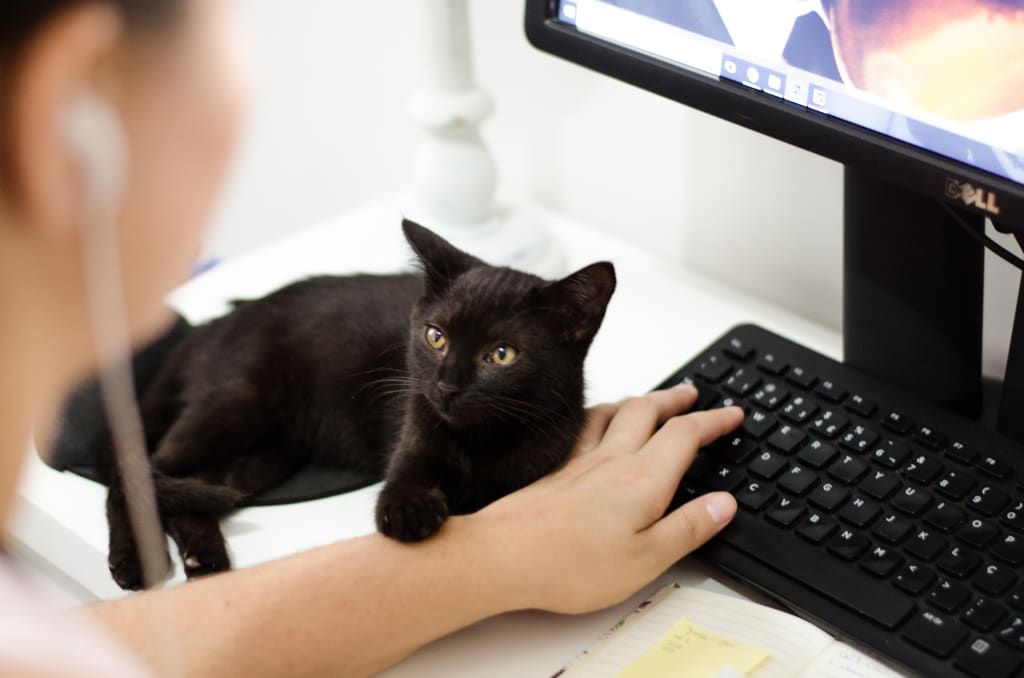The Simple Trick to Learn Vocabulary With Ease
If you don’t care, you don’t learn

Learning vocabulary is the highest mountain to climb on any language-learning journey. There’s no end to it.
It can get so overwhelming that many people give up on the language they learn. They reach a basic level of understanding and stop there. Reaching a plateau much earlier than they should.
I struggled for a long time with learning new vocabulary in Korean. It plagued my studies for years. I tried and tried and nothing worked.
Nowadays, new words feel easy to learn. All that changed was a mindset change.
I started caring.
Languages have meanings
We all learn languages for a reason. You decide to learn because you love a country’s culture, its books, movies, or music. You learn a language because you’ll be moving there or need it for work. Or maybe your partner is from the country and you want to talk to your in-laws.
Learning a language is easy if you know why you’re learning it. It’s not if you’re forced to learn it and don’t have fun with it.
For me, Japanese and English represent my first love of languages. They’ve shaped my life for two-thirds of my life. We all remember our first love. I got lucky. This one never left me so I got the opportunity to nurture it, to make both languages needed for my daily life. I live and work in both. I think in both. I read in both.
Because they are so important, I don’t forget them and I keep improving.
For other languages, I have to remind myself of the reasons I started. If I don’t, I fall off the train and drop the language, either for a while or forever.
Useless = To be forgotten
I fell in love with the Korean language in 2009 and spent 2 months and a half there in 2010. My level skyrocketed. I wanted to use the language and went to places where nobody spoke English.
I then started going out with a Korean girl and wanted to talk to her in her native language. At first, we spoke about 20-30% of the time in Korean. When we broke up a year and a half later, we spoke about 80% of the time in Korean.
From 2015 to 2019, I spent time studying the language but somehow never really increased my word bank. I read texts and watched videos but my Korean vocabulary stayed stable. I stagnated.
The fact I had skipped the basics of the language slowed my progress — pro tip, don’t skip the basics! But there was more behind this stagnation.
The language had lost its meaning.
Living in Japan, surrounded by Japanese, and not meeting any Korean person, the language faded away. It wasn’t a conscious process. I just didn’t notice my Korean learning habits slip through my fingers.
It wasn’t until I started studying for the Korean proficiency test that I began learning new words. Words I didn’t care for in the past became important. Certain types of texts I had no interest in became attractive. I wanted to understand more.
In the past, I wasn’t interested in reading about environmental topics in Korean. As such, I saw the word 오염 (pollution) many times but never remembered it. Now that I want to improve and expand my skills, it stuck in my memory the first day I encountered it a few months ago. Connected words such as 대기오염 (air pollution), 환경친화적 (eco-friendly), and 오염시키다 (to contaminate), were also easier to learn.
I had found a reason to learn these words. The reason helped me remember and thus made the texts read more interesting. This, in turn, made the words even easier to assimilate.
You can’t learn vocabulary you don’t care about. I’ve tried. You can force it into your middle-term memory with a lot of effort but it’ll never reach long-term memory.
Don’t do this mistake. It’s painful and makes you doubt your capacities to learn the language even though it has nothing to do with it. Your capacities are as awesome as the next person.
Focus on vocabulary you care for. Vocabulary you use. Vocabulary you’re curious about. Ignore the rest. You don’t have to know words about every topic in the world.
I can talk about self-improvement in English without a problem but I don’t care (for now) about it in French. I don’t need it nor want it. Learning words to talk about the creation of habits or how the brain works in French isn’t worth my time. It might later, but not now.
Be careful of friends
As you learn a language, you’re bound to make friends who are learning the same language. It’s part of the beauty of a language-learning journey.
There is, however, a risk with friends learning the same language. They aren’t you. They are them, with their own likes and dislikes. What you enjoy digging into may not be as interesting to them, and vice-versa.
Don’t follow other people on your journey. You have your path. Learning words about politics or art will be a waste of your time if you’re not interested in those.
Enjoy your exchanges with your friends. Listen to their methods and words they’re learning. Notice how much fun they’re having. And then find what attracts you.
Don’t let anybody tell you that learning words about termites in Nepali is pointless. If you enjoy it, go for it.
If you enjoy it, you’ll remember.
If you enjoy the journey, you’ll keep at it. And that’s the main goal.
-------
Disclaimer
The original version of this story was published on another platform.
-------
Still curious about languages and learning? Sign up for my weekly newsletter!
About the Creator
Mathias Barra
Polyglot speaking 6 languages. Writer. Helping the world to learn languages and become more understanding of others. Say hi → https://linktr.ee/MathiasBarra
Enjoyed the story? Support the Creator.
Subscribe for free to receive all their stories in your feed. You could also pledge your support or give them a one-off tip, letting them know you appreciate their work.






Comments
There are no comments for this story
Be the first to respond and start the conversation.